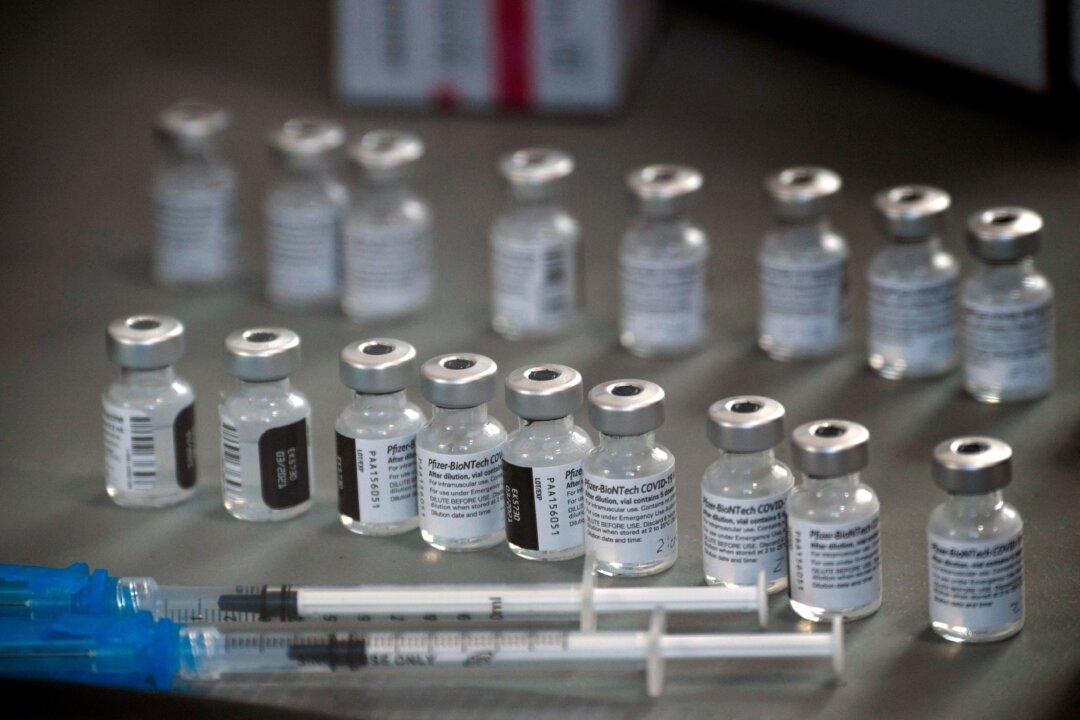Data from a clinical trial show that Pfizer’s COVID-19 vaccine triggers a strong immune response in children between the ages of 5 and 11, the company and its German partner said on Sept. 20.

Syringes and vials of the Pfizer-BioNTech COVID-19 vaccine are prepared to be administered at a drive up vaccination site from Renown Health in Reno, Nev. on Dec. 17, 2020. Patrick T. Fallon/AFP via Getty Images

Zachary Stieber
Senior Reporter
|Updated:
Zachary Stieber is a senior reporter for The Epoch Times based in Maryland. He covers U.S. and world news. Contact Zachary at [email protected]
Author’s Selected Articles



